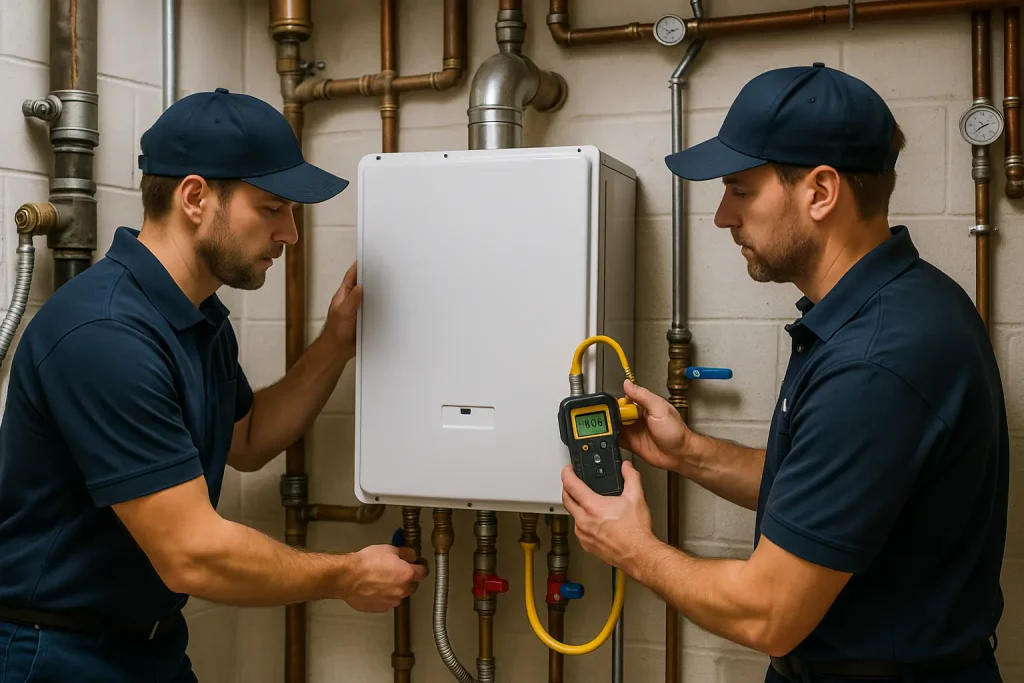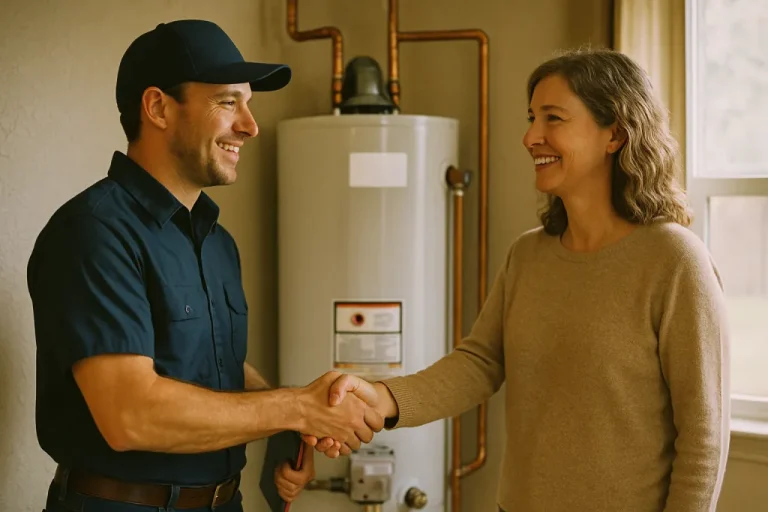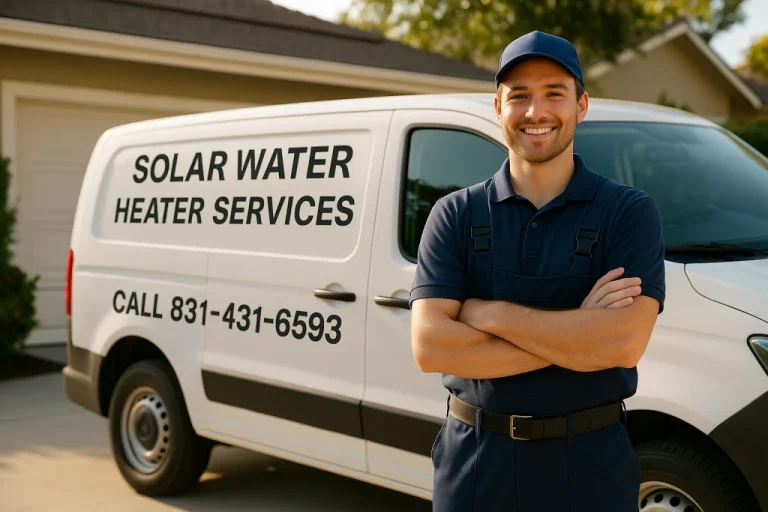
In today’s world, energy efficiency is more than just a buzzword it’s a necessity. Homeowners are increasingly seeking ways to reduce energy consumption and lower utility bills without compromising on comfort. One such advancement in home heating technology is the condensing water heater. These systems are revolutionizing the way we think about water heating by maximizing energy use and minimizing waste. For more detailed information, you can check this page: https://anytimeplumbing.net/condensing-water-heaters/.
What Is a Condensing Water Heater?
A condensing water heater is a high-efficiency appliance designed to extract additional heat from exhaust gases that would otherwise be lost in traditional water heaters. This is achieved through a secondary heat exchanger that captures heat from the flue gases, allowing it to be reused to heat incoming water. As a result, condensing water heaters can achieve efficiency ratings of 90% or higher, compared to the 60–70% efficiency of conventional models.
These water heaters are often tankless or have smaller tanks, making them ideal for modern homes where both efficiency and space-saving are priorities. They are designed to reduce fuel usage while still delivering reliable and consistent hot water, making them an attractive option for homeowners looking to upgrade from older, less efficient models.
How Do Condensing Water Heaters Work?
The operation of a condensing water heater involves two key components:
- Primary Heat Exchanger: This component heats the incoming cold water using the combustion process. It works similarly to conventional heaters in raising the water temperature.
- Secondary Heat Exchanger: After the combustion gases pass through the primary exchanger, they enter the secondary exchanger, where their residual heat is transferred to the incoming water. As the gases cool, the water vapor condenses into liquid, releasing additional heat.
By capturing and reusing heat that would otherwise be lost, condensing water heaters provide a more energy-efficient solution for heating water in homes. This process ensures that nearly all the energy from the fuel is put to good use, minimizing waste.

Benefits of Condensing Water Heaters
Energy Efficiency
The primary advantage of condensing water heaters is their high energy efficiency. By recovering heat from exhaust gases, these systems use less fuel to heat the same amount of water, leading to lower energy bills. Over its lifespan, a condensing tankless water heater can save homeowners a substantial amount in energy costs.
Environmental Impact
Condensing water heaters contribute to a reduction in greenhouse gas emissions due to their efficient use of fuel. By consuming less energy, they help decrease the carbon footprint of a household, making them an environmentally friendly choice.
Consistent Hot Water Supply
These systems provide a continuous supply of hot water, as they heat water on demand. This is particularly beneficial for larger households or homes with high hot water usage, ensuring that multiple fixtures can be used simultaneously without a drop in water temperature.
Space-Saving Design
Condensing tankless water heaters are compact and can be installed in smaller spaces compared to traditional tank-style heaters. Their space-saving design is ideal for homes with limited installation areas, such as apartments or small utility rooms.

Durability and Longevity
With fewer components subject to wear and tear compared to conventional systems, condensing water heaters often have longer lifespans. Proper maintenance can allow these units to operate efficiently for 15–20 years or more, making them a long-term investment for your home.
Considerations Before Installation
While the benefits are compelling, there are several factors to consider before opting for a condensing water heater:
- Higher Initial Cost: The advanced technology and components of condensing water heaters result in a higher upfront cost compared to traditional models.
- Installation Requirements: These systems may require specific venting materials and a drainage system for the condensate, which can add to the installation complexity and cost.
- Maintenance Needs: Regular maintenance is essential to ensure optimal performance. This includes checking the condensate drainage system and cleaning components as needed.
- Water Quality: Hard water can affect the efficiency and lifespan of condensing water heaters. Homeowners may need to install water softening systems to prevent mineral buildup.
Choosing the Right System for Your Home
Selecting the appropriate water heating system depends on various factors, including household size, water usage patterns, and budget. Condensing water heaters are particularly suitable for homes with high hot water demand and those looking to reduce energy consumption. However, it’s important to assess the initial investment and installation requirements to determine if it’s the right fit for your situation.
Conclusion
Condensing water heaters represent a significant advancement in home heating technology, offering enhanced energy efficiency, environmental benefits, and a reliable hot water supply. By understanding how they work and considering the associated factors, homeowners can make informed decisions about upgrading their water heating systems.
